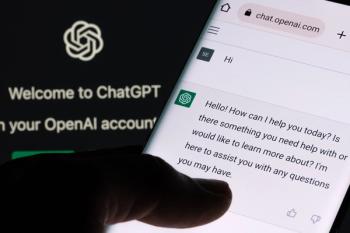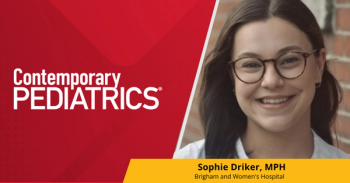
FDA authorizes Essilor Stellest eyeglass lenses to slow myopia progression in children
The FDA has authorized Essilor Stellest eyeglass lenses to correct myopia and slow progression in children, offering a lower-risk option than contacts.
The FDA has authorized the marketing of Essilor Stellest eyeglass lenses for children aged 6 to 12 years to correct myopia and slow its progression. The decision marks an expansion of treatment options for pediatric patients, particularly those who are unable or unwilling to use contact lenses.1
Myopia, or nearsightedness, is a chronic disease that affects approximately 40% of the US population and continues to increase in prevalence, especially among children and adolescents. The National Eye Institute projects that by 2050, more than half of the world’s population may become myopic, raising concerns about associated complications such as retinal detachment, myopic maculopathy, glaucoma, and cataracts.
“Strengthening the foundation of our nation’s health begins at childhood. This authorization reflects the FDA’s unwavering commitment to addressing chronic diseases and advancing safe, effective, and innovative medical devices that improve the lives of young Americans,” the agency stated in its announcement.
The Stellest lenses feature a clear 9 mm central zone surrounded by concentric rings of tiny, raised dots known as peripheral lenslets. These lenslets create peripheral light defocus, which may help slow eye growth and, in turn, the progression of myopia. Unlike contact lenses, the eyeglass lenses carry fewer risks and are not associated with complications such as infection.
Michelle Tarver, MD, PhD, director of the FDA’s Center for Devices and Radiological Health, emphasized the potential impact. “As a practicing ophthalmologist, I see firsthand the lifelong impact that vision problems can have on an individual. Today’s authorization brings to market a treatment option that may meaningfully reduce the likelihood of severe eyesight issues later in adult life, while also being easier to use and lower risk than the currently authorized devices that slow the progression of myopia in children,” Tarver said.
The FDA reviewed results from a 2-year clinical trial evaluating the Stellest lenses in children. Participants wearing Stellest lenses experienced a 71% reduction in myopia progression, measured by spherical equivalent refraction, and a 53% reduction in axial length elongation compared with children wearing single-vision control lenses. No serious adverse events were reported, though some participants experienced visual disturbances such as halos and blur.2
The lenses were reviewed under the De Novo premarket review pathway, which is designed for low- to moderate-risk devices that represent novel technologies. The FDA is also establishing special controls for labeling and performance testing to ensure long-term safety and effectiveness.
The Essilor Stellest lenses were previously granted Breakthrough Device designation in April 2021, a status reserved for products that may provide more effective treatment for life-threatening or irreversibly debilitating conditions. This designation allowed for expedited development and review.
The marketing authorization builds upon clinical research supporting spectacle-based interventions for myopia management. A recent 5-year follow-up study of spectacle lenses with highly aspherical lenslets (HAL) demonstrated significant reductions in both myopia progression and axial elongation in children compared with control lenses. The long-term data reinforce the potential role of optical devices in addressing the growing public health burden of myopia.
With this authorization, Essilor Stellest eyeglass lenses are now available as a new tool for pediatric ophthalmologists and optometrists to help slow the progression of myopia in children during critical years of visual development.
References:
- FDA. FDA Authorizes Marketing of First Eyeglass Lenses to Slow Progression of Pediatric Myopia. FDA. September 25, 2025. Accessed September 25, 2025. https://www.fda.gov/news-events/press-announcements/fda-authorizes-marketing-first-eyeglass-lenses-slow-progression-pediatric-myopia
- Li X, Huang Y, Liu C, et al. Myopia control efficacy of spectacle lenses with highly aspherical lenslets: results of a 5-year follow-up study. Eye and Vision. 2025;12(1). doi:https://doi.org/10.1186/s40662-025-00427-3
Newsletter
Access practical, evidence-based guidance to support better care for our youngest patients. Join our email list for the latest clinical updates.






